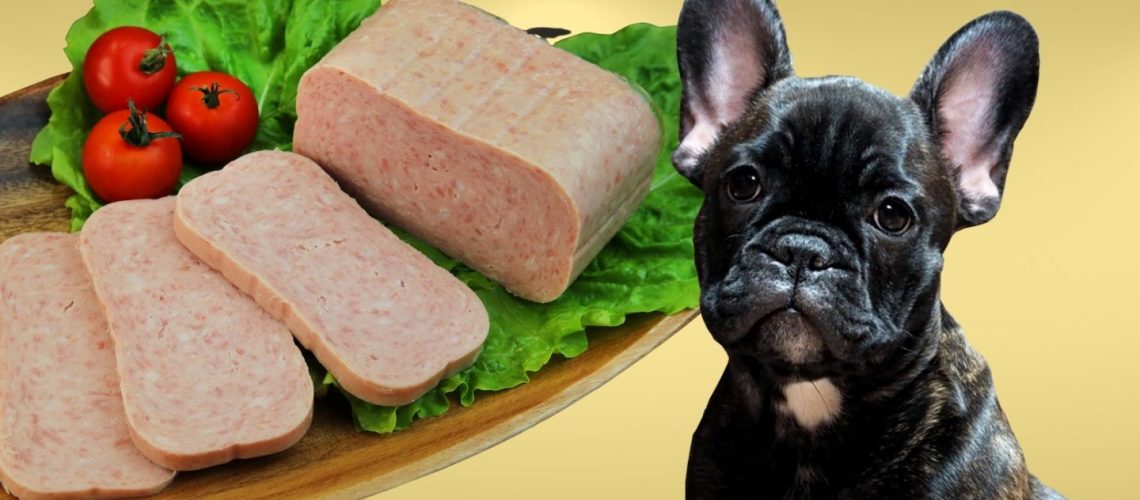The short answer is no, dogs should not eat spam. Spam is a processed meat product made from pork and ham that is high in salt and preservatives, which can be harmful to dogs if consumed in large quantities.
What is Spam?
Spam is a canned meat product that has been popular among humans since its creation in the 1930s. It is made primarily from ground pork and ham, but also contains other ingredients such as salt, water, potato starch, sugar, and sodium nitrite. Although it may be a convenient and affordable food option for people, spam is not suitable for dogs due to its high salt content and the presence of potential allergens and harmful additives.
Reasons Why Dogs Shouldn't Eat Spam
High Salt Content
Spam contains a significant amount of salt, which can be harmful to dogs when consumed in large quantities. Excessive salt intake in dogs can lead to electrolyte imbalances, increased thirst and urination, and even sodium ion poisoning, which can be life-threatening. Dogs should not be exposed to the high levels of salt in spam.
Preservatives
Spam contains sodium nitrite, a preservative that can cause gastrointestinal irritation and may contribute to the development of pancreatitis in dogs. It is best to avoid feeding your dog processed meats, including spam, which contain potentially harmful preservatives.
Empty Calories and Obesity
Spam contains potato starch, which provides empty calories and can contribute to weight gain and obesity in dogs. Obesity can lead to a range of health issues in dogs, including joint problems, heart disease, and diabetes. Feeding your dog spam is not worth the risk of developing health issues related to obesity.
Allergies and Sensitivities
Some dogs may be allergic or sensitive to the ingredients found in spam, such as pork or potato starch. Common signs of food allergies in dogs include itching, skin irritations, gastrointestinal problems, and ear infections. Feeding your dog spam may trigger these allergy symptoms, so it is best to avoid this processed meat altogether.
Safe Alternatives to Spam for Dogs
Fresh Meats
If you want to treat your dog to some meat, choose fresh, lean meats like chicken, turkey, or beef. Ensure that the meat is properly cooked and free of harmful bacteria. Avoid feeding your dog any processed meats like spam.
Dog-Friendly Treats
There are many commercially available dog treats that are specifically formulated for the needs of our canine companions. You can also try making homemade dog treats using healthy, dog-safe ingredients like pumpkin, sweet potatoes, or peanut butter (make sure it doesn't contain xylitol, which is toxic to dogs).
Essential Nutrients for Dogs
A balanced diet for dogs should include appropriate amounts of protein, fats, carbohydrates, vitamins, and minerals. Consult your veterinarian or a pet nutritionist to ensure your dog's diet meets their nutritional needs.
How to Ensure Your Dog's Diet is Balanced and Nutritious
Dog Food Options
There are numerous dog food options on the market, including commercial dog food, home-cooked dog food, and raw feeding. Each option has its benefits and drawbacks, so it is important to research and consult with a professional to determine the best option for your dog.
Consulting with a Veterinarian or Pet Nutritionist
A veterinarian or pet nutritionist can help you determine the best diet for your dog's individual needs. They can recommend specific dog food brands or provide guidance on preparing homemade dog meals.
Monitoring Your Dog's Health and Adjusting Their Diet Accordingly
Regular check-ups with your veterinarian will help you monitor your dog's health and ensure that their diet continues to meet their nutritional needs. Be prepared to make adjustments to your dog's diet as needed.
In Case of Emergency
If your dog has consumed a significant amount of spam and is exhibiting signs of illness or distress, such as vomiting, diarrhea, lethargy, or loss of appetite, seek immediate veterinary care. Poisoning or allergic reactions can be serious, and prompt treatment can save your dog's life.
Final Thoughts
While spam may be a convenient and tasty option for humans, it is not a suitable food for dogs due to its high salt levels, preservatives, and potential allergens. A dog's diet should be balanced, nutritious, and focused on providing the essential nutrients they need for optimal health. As a responsible pet owner, it is our duty to ensure that our dogs receive the proper diet and care for their well-being.











